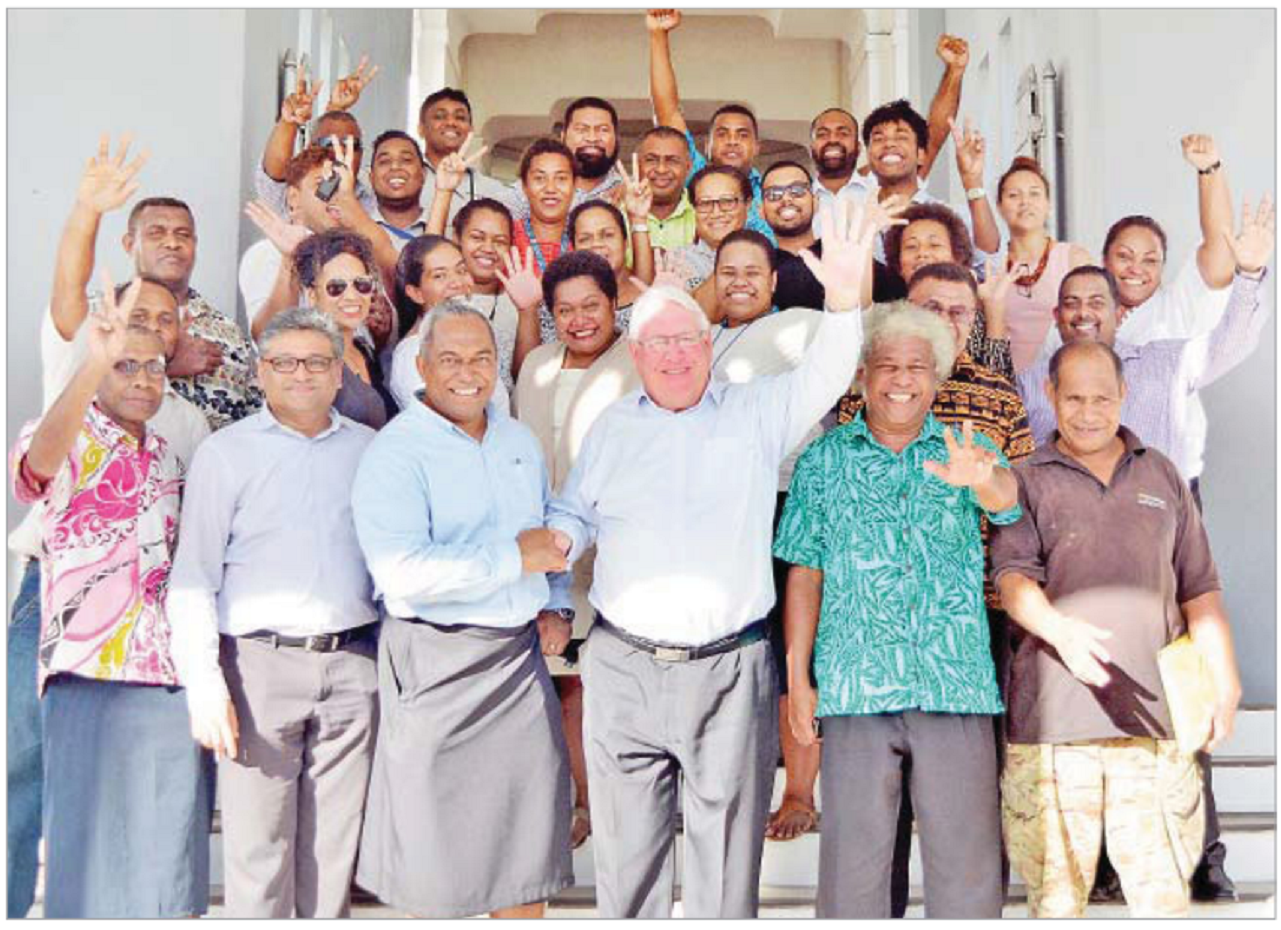IN his judgment delivered yesterday, High Court judge Justice Thushara Rajasinghe said he had considered the meaning of the article that was published in the Nai Lalakai newspaper on April 27, 2016 in order
to determine whether it had the meaning that was claimed by the prosecution or the meaning that was claimed by the defence.
Watch the reaction of the acquitted here:
Below is a summary of his judgment against the four accused persons and Fiji Times Ltd.
Josaia Waqabaca
Josaia Waqabaca, a letter writer, was initially charged with one count of submitting for publication an article written by him with a seditious intention.
Justice Rajasinghe said the defence had submitted that Mr Waqabaca had given a petition to the Attorney-General and suggested to have a national reconciliation to discuss and resolve issues pertaining to iTaukei communities which could create greater instability in future.
He said after going through the evidence, he found there was a reasonable doubt on whether a reasonable, sensible and fair-minded iTaukei reader would understand the article in the manner that was alleged by the prosecution or would the reader understand that the article was proposing for a national reconciliation as a means to resolve issues pertaining to the iTaukei communities.
Justice Rajasinghe said the prosecution had failed to prove beyond reasonable doubt that the said article, if taken into consideration in its entirety would say that Muslims were land grabbing monsters who raped, murdered and abused children and unless the readers of Nai Lalakai took actions, these Muslim monsters would take over Fiji.
Hank Arts and the Fiji Times Ltd
The prosecution had to prove beyond reasonable doubt that The Fiji Times publisher and general manager Hank Arts and the Fiji Times Ltd published and printed the article with the intention to promote feelings of ill will and hostility between Muslims and nonMuslim population of Fiji.
Justice Rajasinghe said the prosecution only tendered the employment contract of Mr Arts in order to prove that Mr Arts had necessary intention.
Prosecution witness Inspector Esili Nadolo, in his evidence, admitted that police did not conduct any investigation to confirm whether Mr Arts or Wesley had ever known about the article, or had ever seen or
read the said article before it was published and printed.
After considering the evidence that was given in court by two employees of the The Fiji Times, Justice Rajasinghe found that the prosecution had failed to prove beyond reasonable doubt that Mr Arts published
the article with an intention to promote the feelings of ill will and hostility between Muslims and non-Muslims in Fiji.
Justice Rajasinghe said in view of the said finding of the intention of Mr Arts, he found that the prosecution had also failed to prove beyond reasonable doubt that the Fiji Times Ltd had the necessary guilty intention in printing the article.
Fred Wesley
The Fiji Times Editor in Chief was initially charged for aiding and abetting Mr Arts to publish the article.
Justice Rajasinghe said the prosecution had to establish beyond reasonable doubt that Wesley with an intention to aid or abet Mr Arts did not perform his contractual duty, that was to assist Mr Arts to maintain
the editorial standard.
He said the prosecution presented Wesley’s employment contract and had invited the court to consider it as circumstantial evidence and to make positive inference that Wesley had not performed his contractual duty to assist Mr Arts to maintain editorial standards with the intention to aid and abet Mr Arts to commit an offence.
Having carefully scrutinised the content of the employment contract that was presented by the prosecution to court, Justice Rajasinghe said he had not found any clause that imposed such a duty on Wesley that he had to assist Mr Arts to maintain editorial standards.
Justice Rajasinghe said there was no evidence adduced by the prosecution to prove that Wesley had an intention to aid and abet Mr Arts to publish the article, apart from the employment contract.
He said the prosecution had failed to prove beyond reasonable doubt that Wesley, with the intention to aid and abet Mr Arts to publish the article, failed to perform his contractual duties as stated in the information.
Anare Ravula
Nai Lalakai editor Anare Ravula was initially charged for aiding and abetting Mr Arts to publish the letter.
The prosecution had to establish beyond reasonable doubt that Ravula with an intention to aid or abet Mr Arts, did not perform his contractual duty, that was to assist Mr Arts to maintain the editorial standard.
Justice Rajasinghe said after carefully scrutinising the content of Ravula’s employment contract which was tendered as an exhibit of the prosecution, he did not find any clause that imposed such a duty on Ravula that he had to assist Mr Arts to maintain editorial standards.
He said the prosecution had failed to prove beyond reasonable doubt that the article was seditious on the ground that it had the tendency to promote ill will and hostility between Muslims and non-Muslim population of Fiji.




